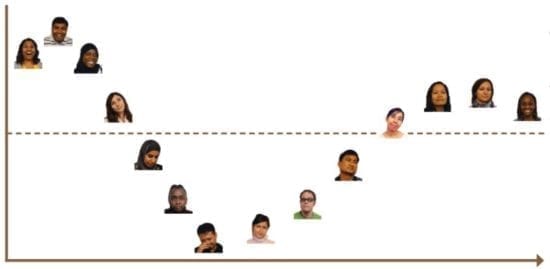What is mental health?
Mental health is about your feelings, how you think, and how you act. It is an important part of your overall health. It can even affect your physical health. Good mental health helps you deal with daily life, make good choices, and handle stress.
Many factors can affect your mental health:
- Family history
- Biological factors
- Alcohol and drugs
- Medical conditions
- Life experiences
- Trauma and abuse
- Loneliness or isolation
Immigrant mental health
As an immigrant, you might face different challenges that can affect how you feel. Adjusting to life in the USA can be overwhelming or lonely. You might also deal with:
- Leaving behind violence or difficult situations in your home country
- Uncertainty about your immigration status or applications
- Fear of being detained or deported
- Being apart from family members
- Feeling disconnected from your culture
- Facing racism and discrimination
These challenges can lead to more feelings of depression, anxiety, and PTSD. Undocumented immigrants, young people, those with disabilities, and people in the LGBTQ+ community may face even more risks due to additional challenges. It’s normal to feel stressed or have mental health problems during such times.
However, many immigrants hesitate to seek mental health services. This might be because people in the USA have different views on mental health than in your home country, or because your culture might not talk about mental health.
Remember, you don’t need to feel embarrassed or ashamed about your feelings. It’s okay to ask for help, and there are resources available. You can find support from providers who speak your language and understand your culture. These resources are here to help you feel better and adjust to your new life.
Mental health conditions
A mental illness or disorder is considered a health condition. It makes it hard to do everyday things like going to school, working, and spending time with friends or family. Mental health problems can be mild or severe and change over time.
Many people in the USA have mental health conditions. About 1 in 5 adults experience mental illness each year. About 1 in 8 people worldwide live with a mental illness.
Common signs
Common symptoms of mental health problems can include:
- Feeling sad or numb or hopeless
- Feeling scared, worried, or angry
- Loss of interest in social activities
- Unable to perform daily tasks
- Having little or no energy
- Eating too much or too little
- Serious weight loss or gain
- Trouble concentrating or staying still
- Thoughts of harming yourself
(https://www.youtube.com/watch?v=zt4sOjWwV3M&t=5s)
It is normal to experience some of these symptoms from time to time. It becomes more serious when they continue to happen for a long time and you do not feel better.
Common mental health conditions
Here is a list of well-known mental health conditions. Conditions like bipolar disorder and schizophrenia are less common.
Anxiety disorders
Everyone feels anxious sometimes, but anxiety becomes a disorder when it happens almost all the time. Anxiety disorders happen when someone has constant anxiety or dread for months and years. Learn more about anxiety.
Depression
Many people may experience mild depression. Mild depression is when someone feels sad or does not feel like doing anything. Major depression lasts for more than two weeks. Learn more about depression.

You are not alone. Learn about mental health and how to get help. Find services and support for immigrants.
Post-traumatic stress disorder
Post-Traumatic Stress Disorder is also called PTSD. It is a natural emotional response to a terrible, shocking, or stressful event. Learn more about immigrant and refugee trauma.
Do you want to learn more about these and other mental health conditions? Watch these videos for more information.
Adjustment disorder
Adjustment disorder is when someone has a hard time coping after a stressful change or event. Some refugees and immigrants experience culture shock after moving to a new country. Learn more about culture shock.
Substance use disorder
Substance abuse disorder is when someone is unable to control their use of alcohol, drugs, and medications.
Obsessive-compulsive disorder
Obsessive-compulsive disorder is also called OCD. It happens when someone has repetitive unwanted thoughts (obsessions) and actions (compulsions).
Eating disorders
Eating disorders happen when someone has serious problems with eating because of their attitude toward food, eating, and body shape. They may eat too much or too little and go through extreme weight changes.
Bipolar disorder
Bipolar disorder is when someone has unusual changes in their mood and energy. People may have extremely up (or manic) or very down (depressive) episodes.
Schizophrenia
Schizophrenia is rare and affects how a person thinks and sees the world. People with schizophrenia might believe things that aren’t real, see or hear things that aren’t there, and have a hard time thinking clearly.
Tafuta msaada
It is important to talk to someone if you feel like you have a mental health problem. It is okay to reach out for help when you are struggling. There is no shame in getting support. Talking about how you feel is a brave step towards feeling better.
You can start by talking to a trusted family member or close friend. You can also talk to a teacher, counselor, coach, or community leader you trust. Share how you are feeling and what type of support you need.
Mental health providers can help you get treatment such as therapy and medication. Anyone, regardless of their immigration status, can get help.
If your symptoms are not getting better, or you are feeling worse, it is important to seek professional help:
★ Visit our page on how to find mental health resources for immigrants.
★ If you are in emotional distress or have thoughts of harming yourself, call or text 988 to talk to a trained crisis worker.
★ If you are in immediate danger, call 911 for emergency assistance.
Zaidi kutoka USAHello
Je, unatafuta taarifa mahususi?
Taarifa kwenye ukurasa huu inatoka NAMI na vyanzo vingine vinavyoaminika. Tunakusudia kutoa taarifa rahisi kueleweka ambazo zinarekebishwa mara kwa mara. Taarifa hii sio ushauri wa kisheria.




